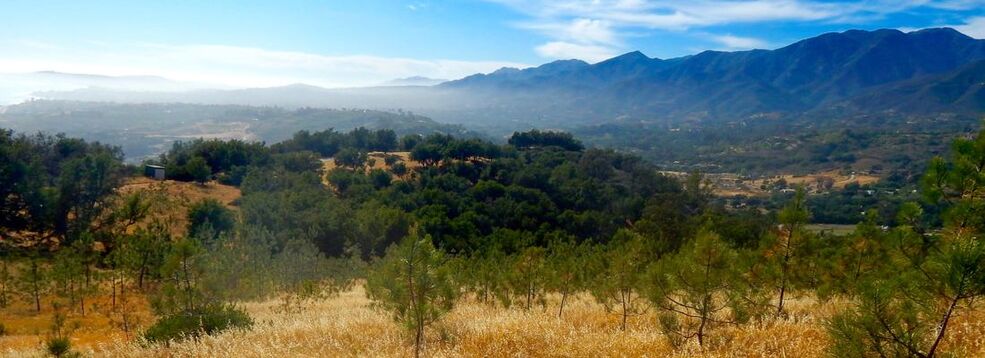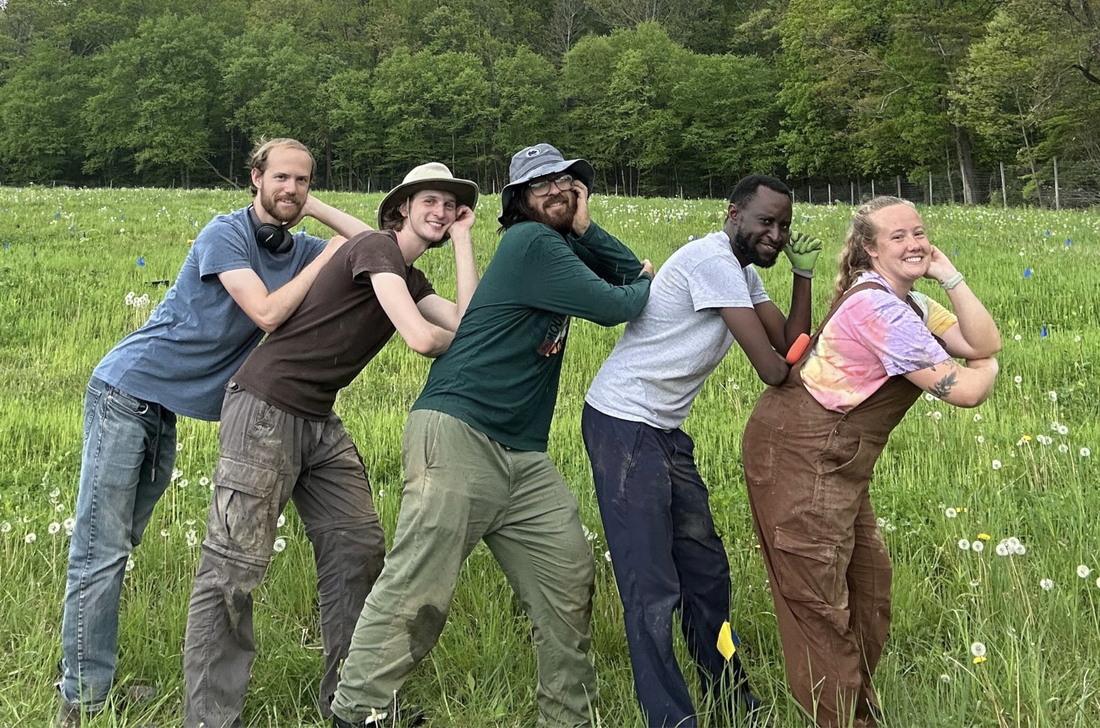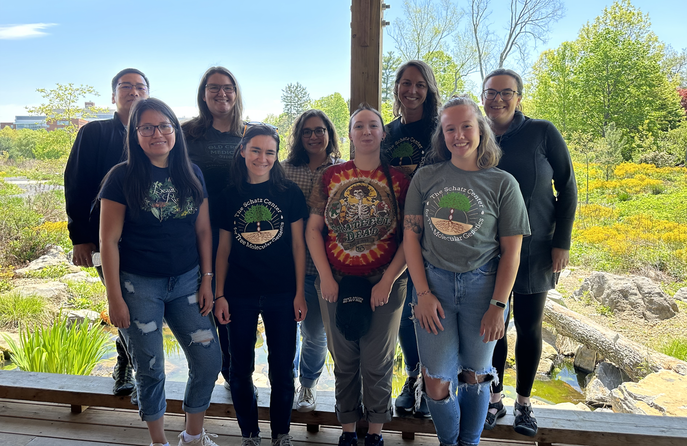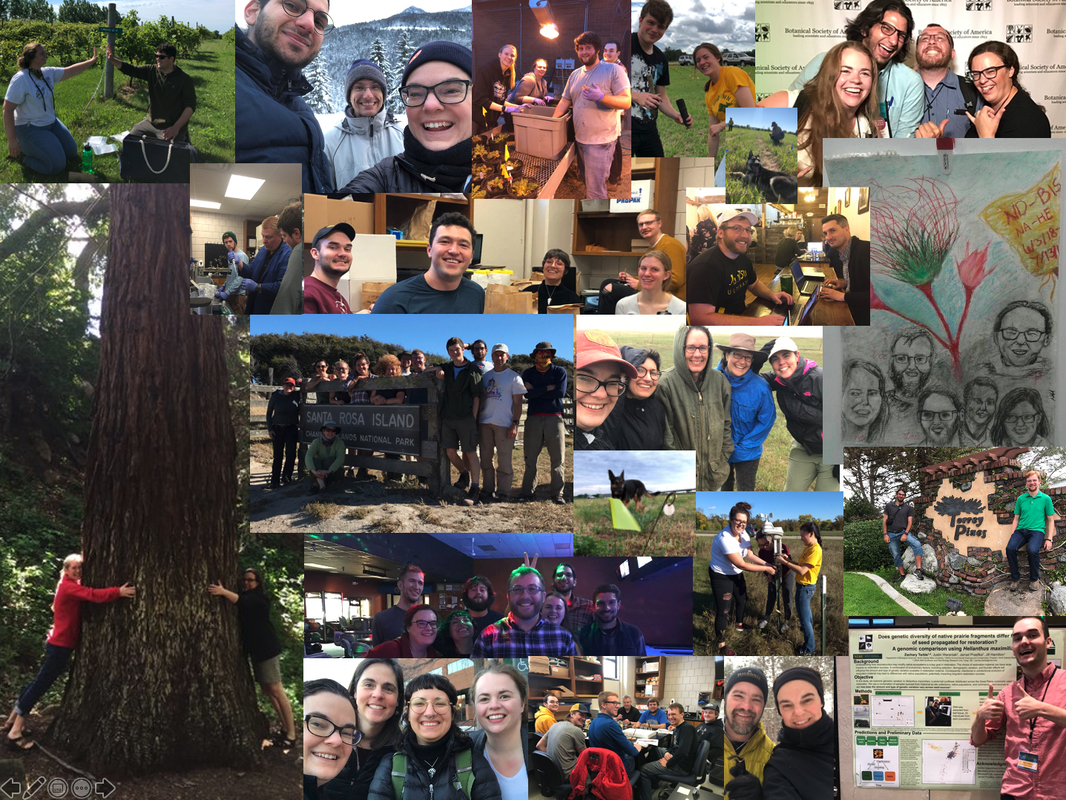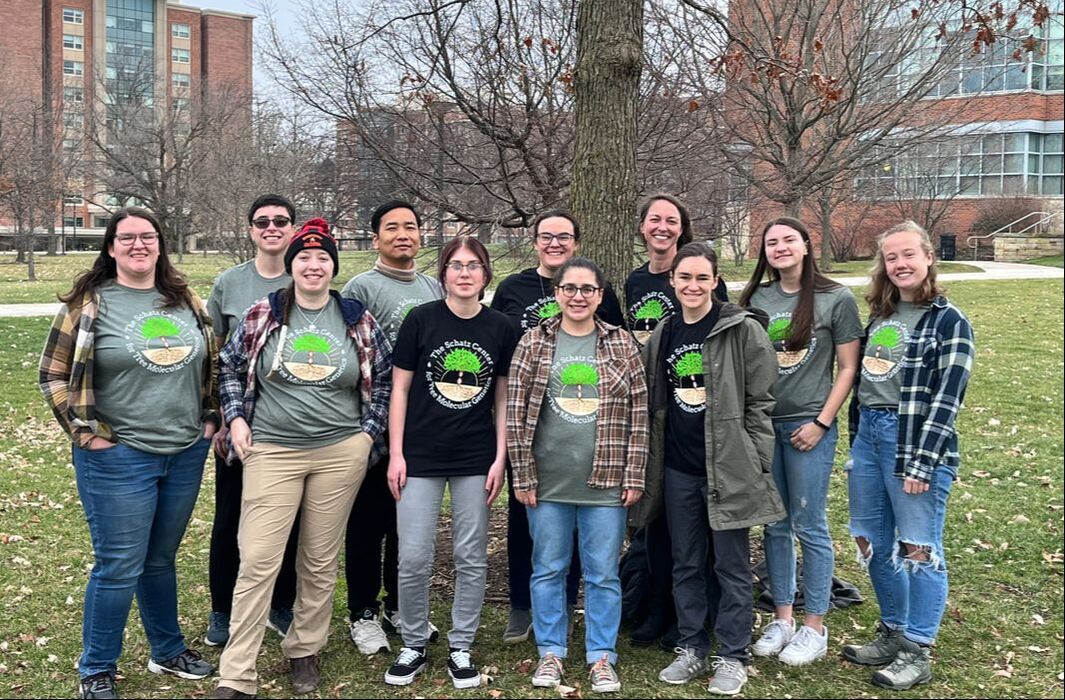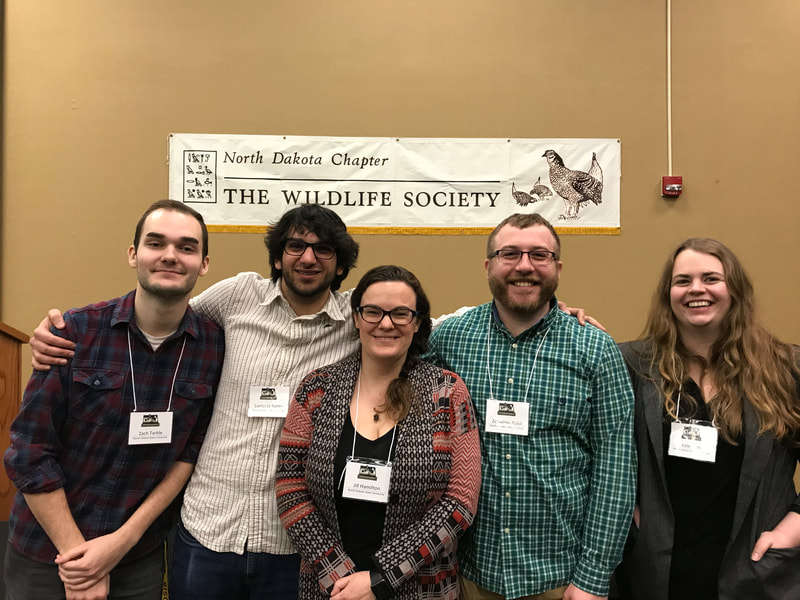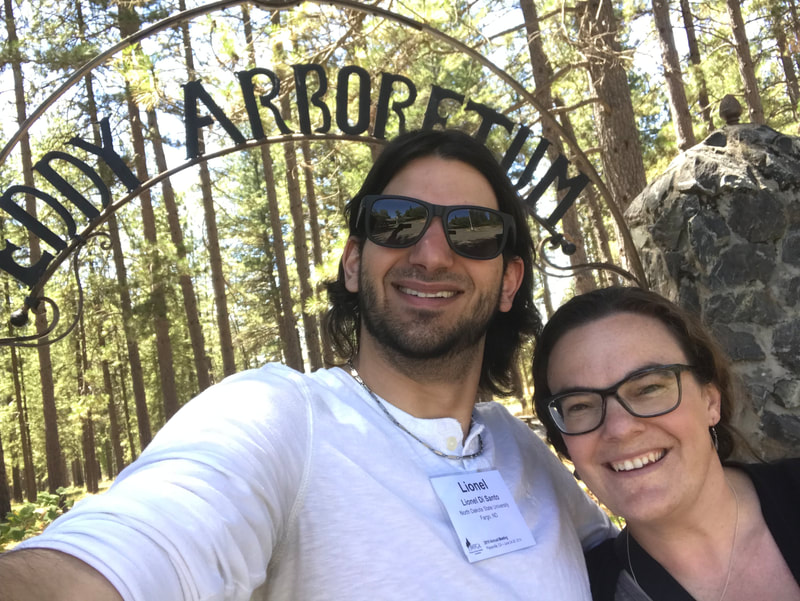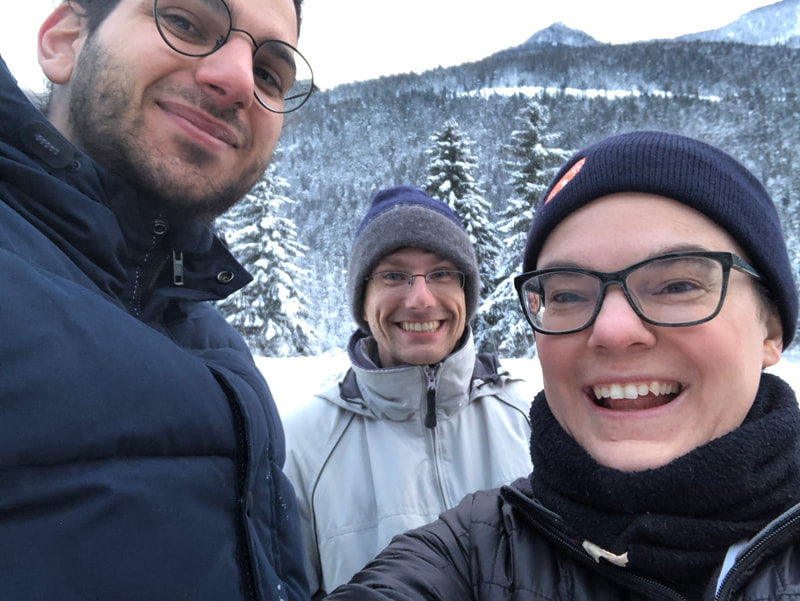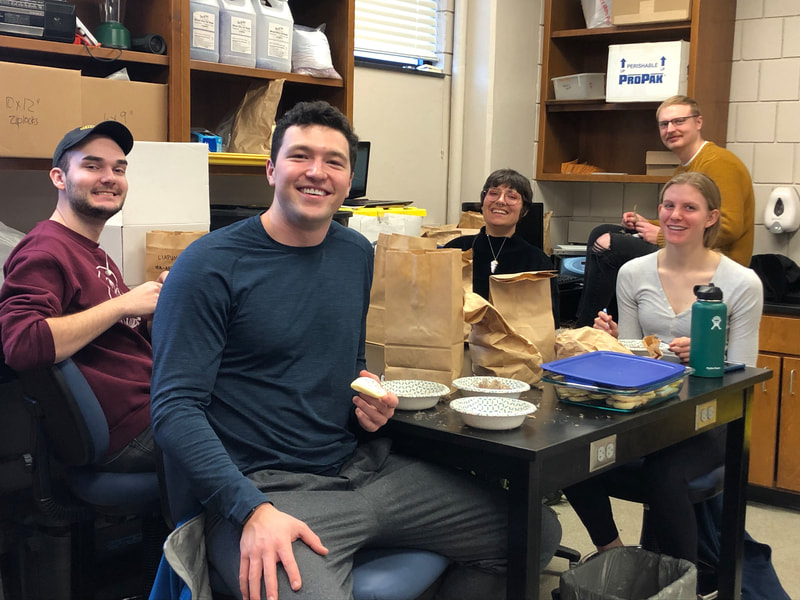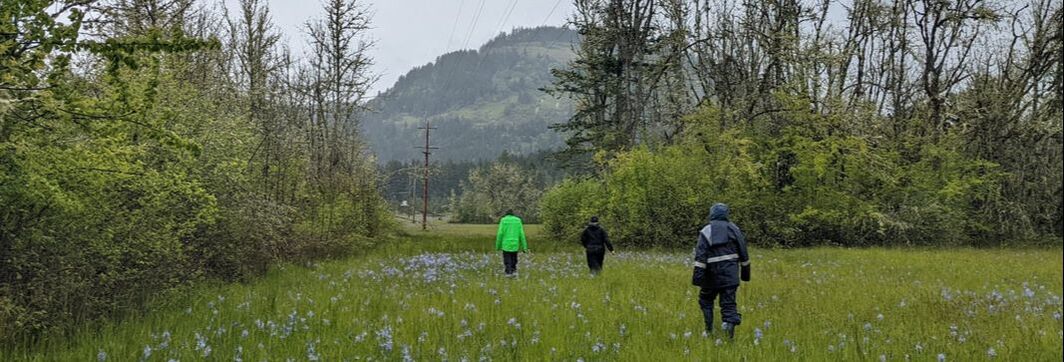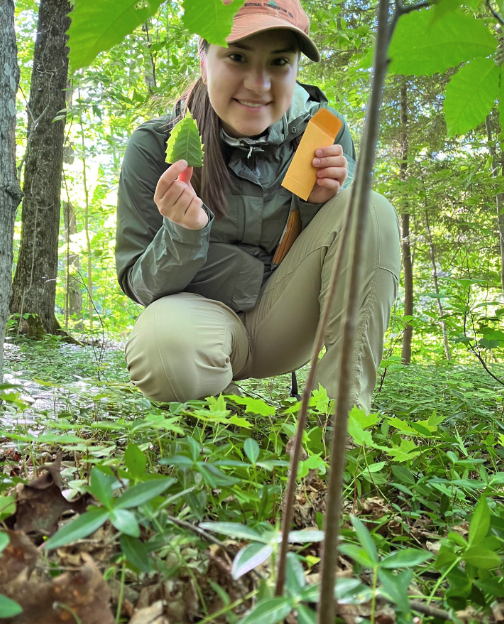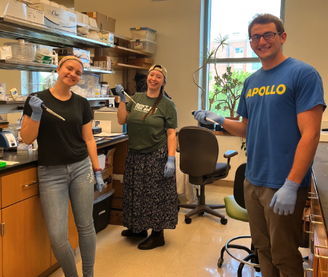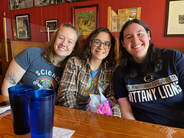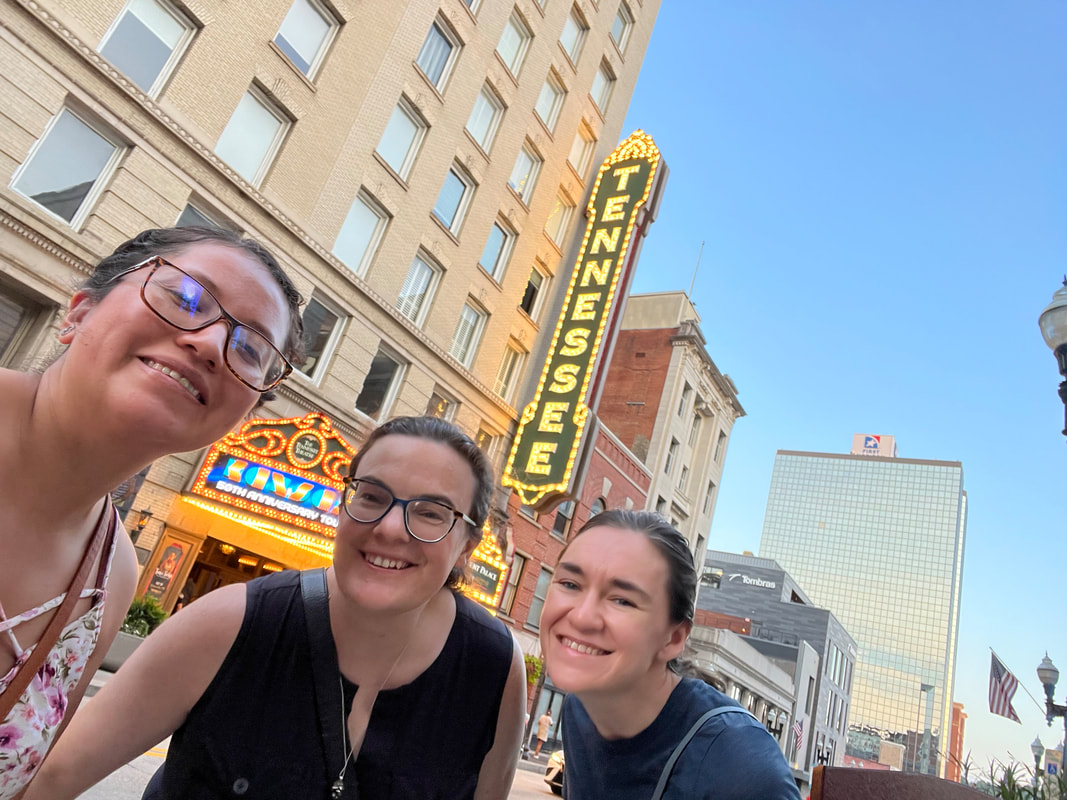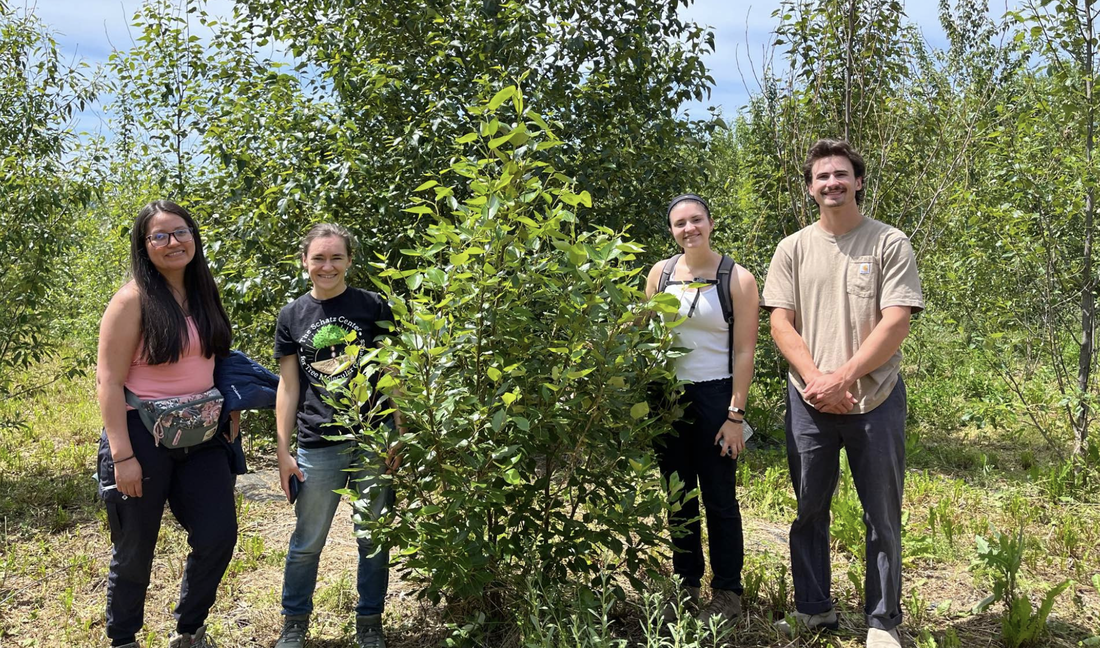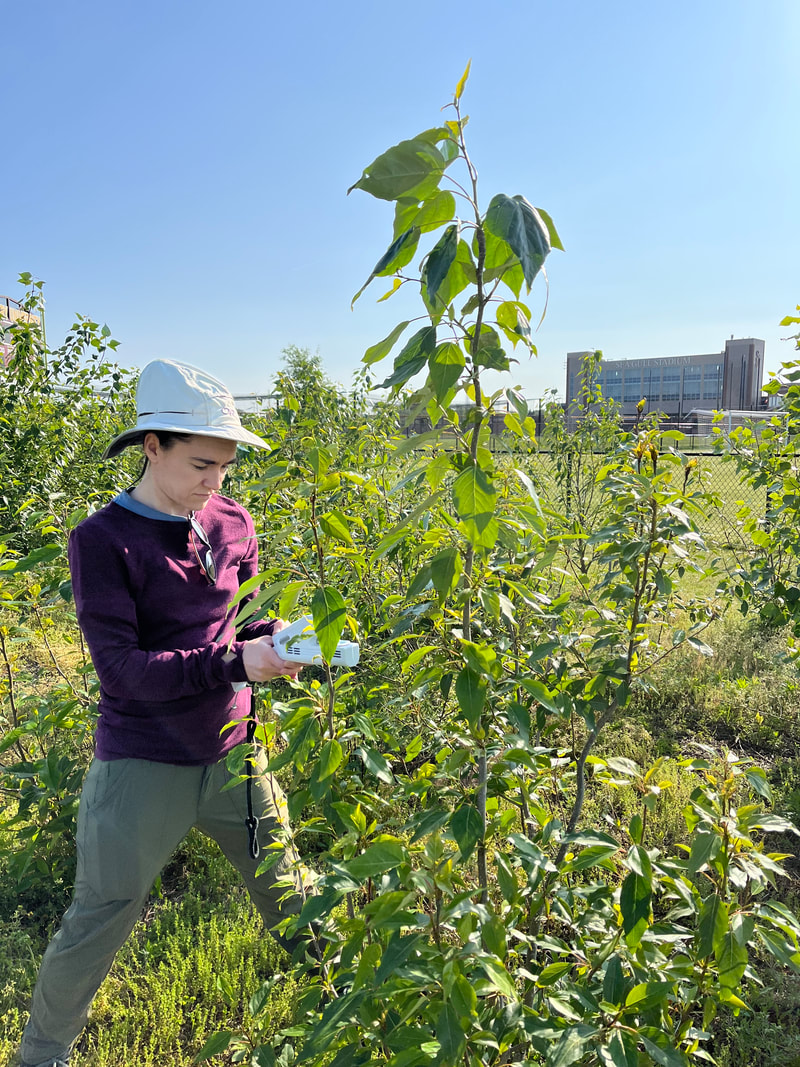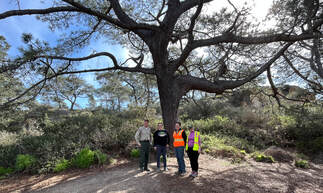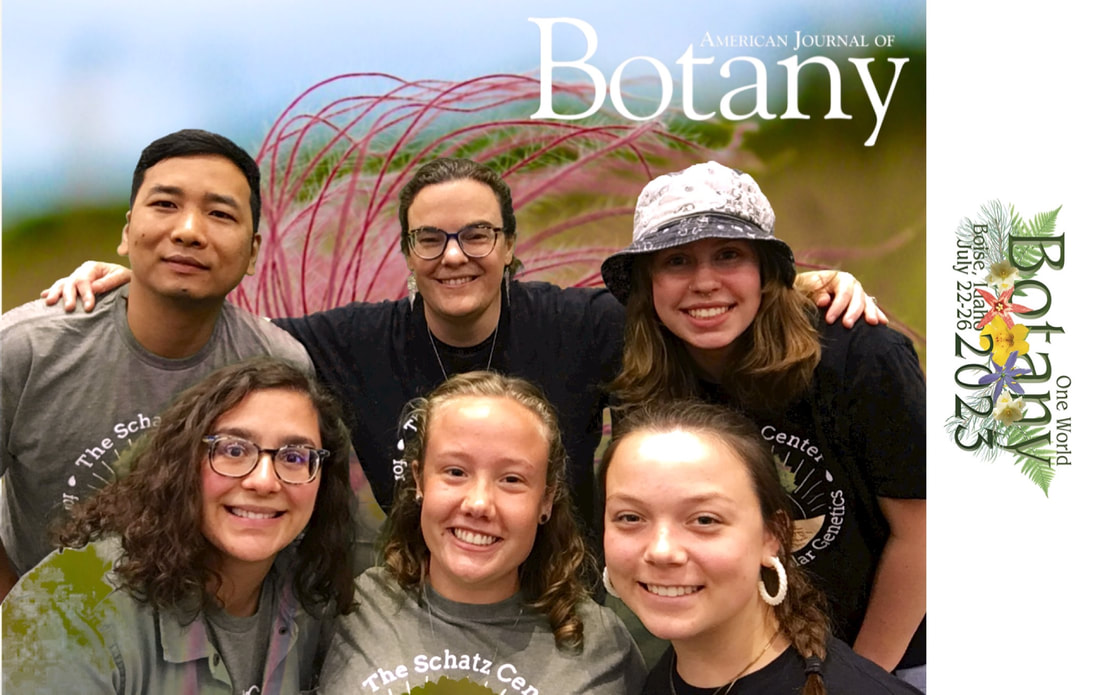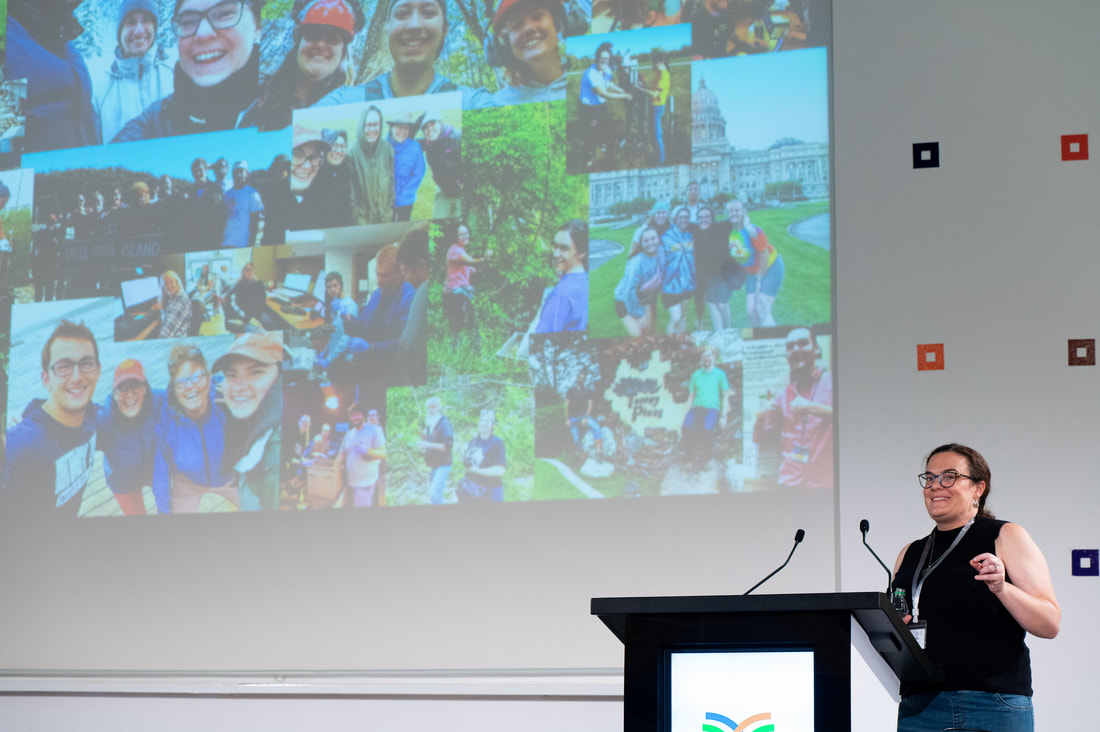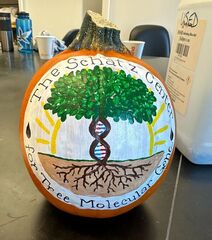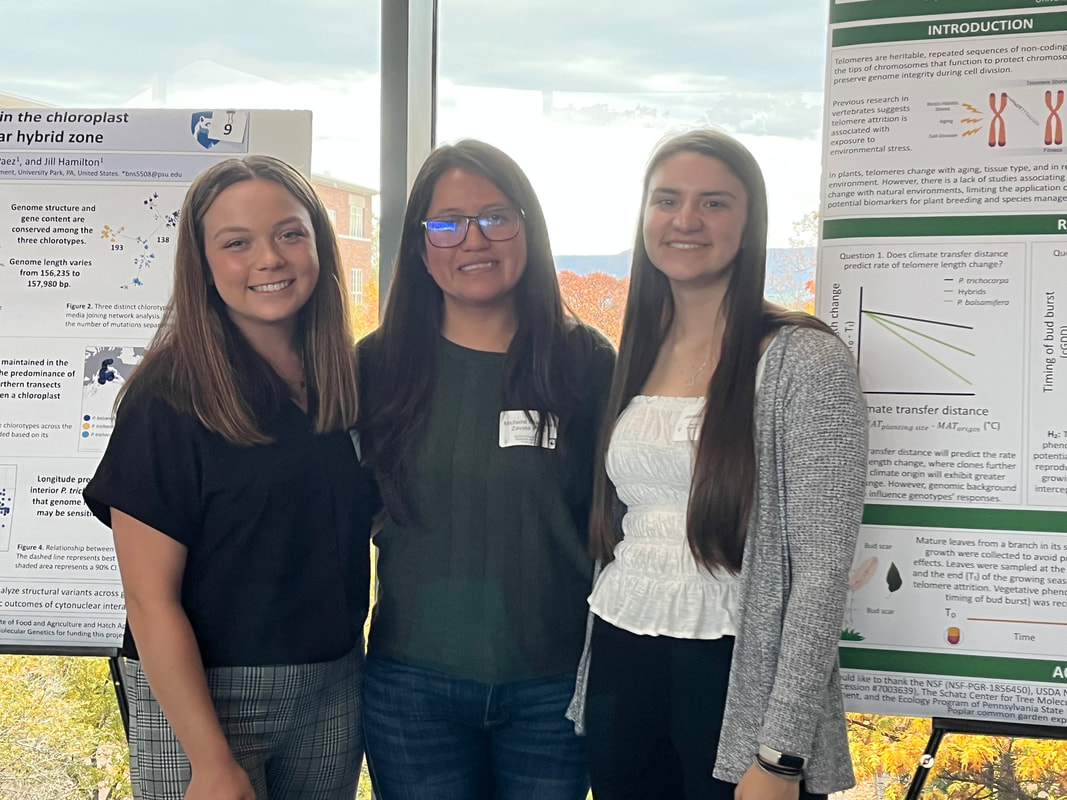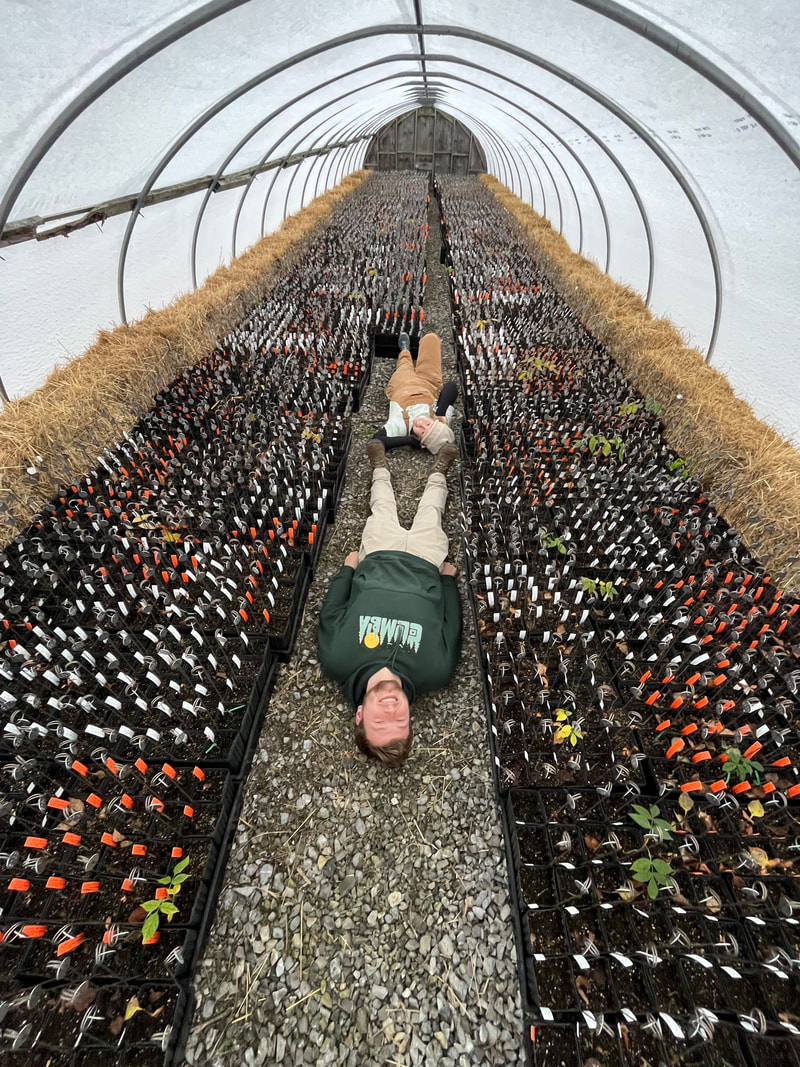Hamilton Lab
Plant Evolutionary and Ecological Genetics
We are currently recruiting post-doctoral scholars to contribute to ongoing research activities.
Please see links below for more information:
Postdoctoral Scholar - Climate-Smart Forestry in Black Walnut and Ash
Please see links below for more information:
Postdoctoral Scholar - Climate-Smart Forestry in Black Walnut and Ash
|
Welcome
The Hamilton Lab broadly focuses on understanding the mechanisms that contribute to local adaptation within natural and managed plant populations Our research bridges population, landscape, and functional genomics combining genomic data, environmental data, and quantitative experiments to understand the genetic basis of traits important to adaptation to climate, climate-related stresses, and disease. |
Lab News
May: Whoa! What a month! The lab has been busy, busy, busy!! Kyra is leading the planting of new black ash common garden experiments (in PA, NY, and QC). With ~4000 trees in the ground we are almost halfway planted! This wouldn't be possible without our amazing undergraduate crew and whole-lab shenanigans in the field!! Michelle has submitted her first dissertation chapter on cytonuclear interactions in Poplar and Alayna has submitted the first paper analyzing fitness data within our #PopUpPoplars experiment. And with little over a month away - we are getting excited to host Forest Genetics 2025 here in State College, PA! We hope to see you there!! January: Bringing in the new year with some exciting papers now online! Anthony's 'Genomics-driven monitoring of Fraxinus latifolia to inform conservation and EAB resistance breeding' is out in Molecular Ecology and the awesome collaboration of graduate students from my Conservation Genetics graduate course on 'Redlisting genetics: towards inclusion of genetic data in IUCN Red List assessments' is available online at Conservation Genetics as well! Kudos all! December: Big news this month as Kyra LoPiccolo successfully defends her thesis proposal and officially becomes a PhD Candidate!! Well done, Kyra!! Also - Anthony Melton's paper on 'Genomics-driven monitoring of Fraxinus latifolia to inform conservation and EAB-resistance breeding' was accepted!! Watch for a PSU news release to complement this important work coming soon! And Forest Genetics 2025 is officially accepting registration and abstract submissions. Come join us this summer in Happy Valley to discuss everything Forest Genetics!! September: This Fall we've been lucky to have success in funding for multiple new projects that are getting underway! (1) Jill, in collaboration with Kathe Budde from the Northwest German Forest Institute, recently sampled Fraxinus pennsylvanica populations in Austria and Germany and they will be using naturalized invasions to learn about adaptation to novel environments (2) New funding from USDA will have the Hamilton Lab establishing three provenance trials of black ash (Fraxinus nigra) accessions within and beyond its range to evaluate the interaction of genetic and environmental variation to climate adaptation and EAB-resistance, and (3) In partnership with Pennsylvania DCNR will be contributing to a genetic assessment of 'Proposed Threatened' Shortleaf Pine (Pinus echinata) to assess frequency of hybridization and proposed seed transfer guidance. So excited to have this projects underway!! and grateful to our many partners for support! July: Penn State news feature put together a nice feature on Connie's recent research in Populus hybrid zones in Molecular Ecology. June: The month of meetings continues with travels to the North American Forest Genetics Society (#NAFGS24) meeting in Oaxaca, Mexico. Alayna and Anthony talked about their research, while Kyra, Jordan, and Alden all presented poster. Schatz Center was well-represented!! The fun has continued with travels to Stockholm, Sweden for the IUFRO World Congress in Forestry (#IUFRO2024) where Jill co-organized a session on the role of hybridization for forest trees in the Anthropocene and Alayna, Michelle, and Melissa all presented research. These meetings have been so much fun to meet new and catch up with colleagues from across the globe! June: Kudos to Connie!! and Michelle and Brianna and the entire PopUp Poplar team for the publication of a new manuscript in Molecular Ecology. Connie led a tour-de-force describing our favorite, but slightly complex Poplar hybrid zone! This is such a nice piece that will be foundational to demographic modeling species contact zones now and into the future. June: Fantastic #PopUpPoplar workshop in Vermont! So great to have Mini Garden Site participants from across the network, including undergrads, graduate students, postdocs and PIs presenting successes and challenges leveraging the power of the replicated common gardens. May: So happy to have our recent collaborative research on ash featured by Penn State news. Funding from The Nature Conservancy and the US Forest Service are supporting these substantial efforts, which would not be possible without fantastic group members and collaborators. #TeamWork = #DreamWork April: New manuscript with fantastic collaborator, Lauren Sullivan examining the effect of climate and varying habitat type (continuous v. fragmented) on dispersal potential in one of our favorites systems, Geum triflorum in Ecology and Evolution. This manuscript wouldn't have been possible without amazing undergraduate researchers: Zoe Portlas, Mercedes Hoffner, and Kelsey Jaeger! April: So many fantastic updates from our fantastic peeps! Michelle has been selected as a Harrar Scholar, providing a year of funding to support her development as a university educator, Connie has been selected as a finalist for the prestigious AAAS Science and Technology Policy Fellowship program, Anthony has received an academic job offer to start his own research and teaching program this Fall, Lucy has been offered an amazing REU opportunity for the summer, Kyra received an Honorable Mention for the competitive NSF GRFP competition, Amanda will be joining the Pennsylvania Bureau of Forestry later this spring as a Forest Health Geneticist, Alayna recently published the genome of Island Oak (Quercus tomentella) and Melissa is about to plant an incredibly ambitious Black ash common garden experiment that will be critical to its long-term conservation. With so much success comes a lot of changes - so stay tuned for new opportunities to join our group! #welovetrees February: We've been so thankful to have Lyne Touchette visiting from the Canadian Forest Service this past week to work with us on Fraxinus projects! Team work = dream work (with some cross-border shenanigans!) December: Exciting times at the end of the year!! Big welcome to Amanda Penn who is joining our group as a research technologist and big congratulations!! to Michelle who successfully transitioned from PhD student to PhD candidate - major milestone success!! November: Nice commentary on our recent paper in Annals of Botany from Dr. Meredith Zettlemoyer. Great summary and opportunities to ask further questions. November: Congratulations to Michelle!! who recently published a cool paper in Molecular Ecology Resources that leverages whole-genome sequencing to estimate telomere length in plants. We're excited about telomeres as a potential biomarker to assay response to abiotic or biotic stress and hopeful this might be a valuable new tool to accelerate plant breeding and conservation. November: Congratulations to former MS student Jess Lindstrom!! who recently published a chapter from her thesis in Ecology and Evolution testing the role of seed source diversity in restoration. She suggests that seed source diversity within species for seed mixes may be needed to ensure long-term resilience and evolutionary potential of restored communities, but that no matter the seed mix land-use history will play a substantial role in establishment following restoration. October: Great new feature in the Tree Seed Working Group News Bulletin on our black ash seed collections and research led by Dr. Melissa Lehrer on 'Preserving range-wide genetic diversity of Fraxinus nigra' July: So proud of this new research paper in Annals of Botany highlighting the importance of considering the role of plasticity across perennial life history stages led by awesome collaborator Mason Kulbaba and former MS student, Zeb Yoko July: The Hamilton Lab is just back from #Botany2023 where Jill presented new research from the #PopUp Poplar gardens, Santosh presented research on SDM modeling for grassland restoration, Brianna presented a poster on chloroplast genomes in our Poplar hybrid zone, Kyra presented a poster on the application of landscape genomics to grassland restoration, and Melissa and Lucia presented a joint poster using morphology of ex situ collections to quantify standing genetic variation in black ash. July: The summer is speeding along. The lab is so happy to welcome new postdoc Anthony Melton! who is joining the lab to contribute to all things ash genomics and conservation. Michelle just returned from SFTIC where she presented research on the role cytonuclear interactions play to phenotypic variation in Poplar and Alayna is just back from Evolution where she presented some of her dissertation work. Also Kudos! to Alayna for her new paper on the California walnut genome! June: Jill and Melissa presented ongoing research on conservation genetics and restoration of ash at the Emerald Ash Borer and Ash Resilience Webinar hosted by APCAW at the University of Maine. June: The Schatz Center hosted visitors from the Oak Ridge National Lab to discuss research opportunities for Populus and bioenergy. We're so excited to continue to learn from each other. May: A new collaboration describing the emerging field of Landscape Transcriptomics and its use for studying global change, led by Dr. Jason Keagy, that Jill contributed to has been featured in Penn State News. April: Schatz Center researchers, Dr. Melissa Lehrer and PhD Student, Kyra LoPiccolo's important research contributing to critical ash conservation efforts was highlighted on Arbor Day - read more about it here! January: The Schatz Center will be representing at the upcoming #PAG30 meeting. Connie Bolte will be presenting PopUp Poplar research in the Population and Conservation Genomics 2 Workshop on Monday 'Exploring the genomic architecture of porous species boundaries: implications for climatic adaptation and hybrid breeding' and Michelle Zavala-Paez will be presenting a poster Monday afternoon 'Leveraging whole genome sequencing data to quantify telomere length variation in plants'. September: So great to see Kate Volk's first chapter from her Master's thesis in print for a Special Issue on 'Approaches to the Study of Quantitative Fitness-Related Traits' in the American Journal of Botany!! Kate started this research as an undergrad at NDSU receiving a Cassel Award for undergraduate research and completed it as part of her MSc. Well done, Kate!! August: Excited to be back for fall semester with a lot of new faces! We're welcoming Dr. Connie Bolte - new postdoctoral scholar joining our NSF-funded PopUp Poplar project (and big congrats! to Connie on her recent paper just out in Tree Genetics and Genomes!), Dr. Santosh Rana - new postdoctoral scholar joining our USDA-funded project on genomics monitoring of Oregon ash, and Kyra LoPiccolo - rotating PhD student in the Plant Biology program who joins with a wealth of expertise in biotechnology of forest trees. Excited for things to come!! July: Congratulations to Lionel who has had his last official dissertation chapter published in Molecular Ecology this month examining the evolutionary history of Torrey pine using genomic data. I really love how this paper - recently featured in PSU News - uses genomic data to consider how different conservation strategies could impact a critically endangered species #ProudPI June: June has been a whirlwind of field research, field travel, conferences and more. Michelle and Nadia are in North Dakota phenotyping physiological traits in poplar for the PopUp Poplars project; Jill and Jordan (along with collaborators Sara and Dylan from The American Chestnut Foundation) have been in Vermont and Maine sampling Green Ash and American Chestnut; Maureen is back from an epic adventure through California and Oregon sampling Oregon Ash. Jill is back from the North American Forest Genetics Society meeting newly invigorated by the field! and Kate just had her first first-author paper accepted for a Special Issue in American Journal of Botany. Stay tuned for her research considering the role of environment on trait differences and the impacts that may have to restoration planning and decision-making. |
